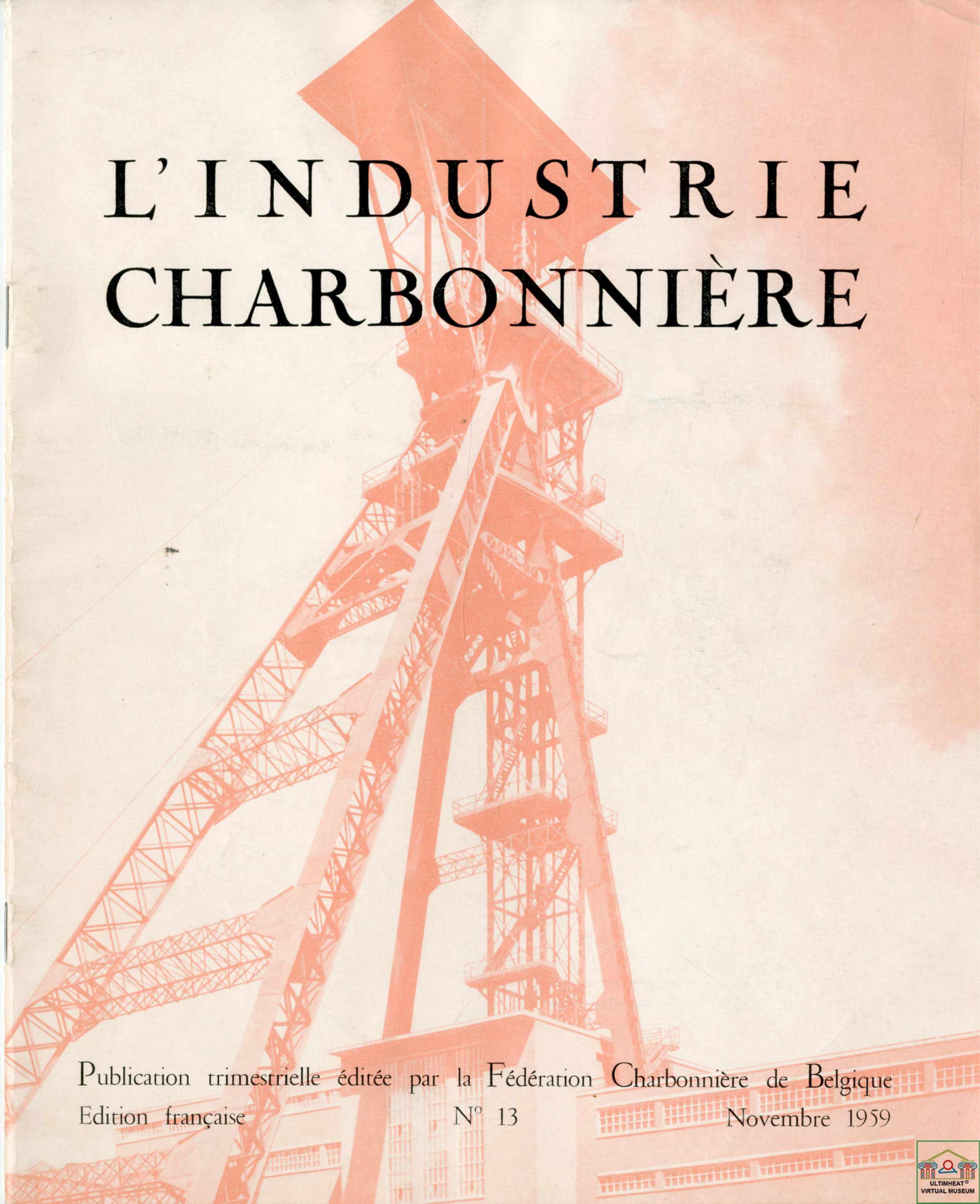
Fédération Charbonnière de Belgique
Date de publication :
1959
Ville :

L'Industrie Charbonnière N13. Il souligne l'importance d'une planification énergétique coordonnée, en mettant en garde contre les erreurs de prévision et la dépendance excessive envers une seule source d'énergie. Il met en lumière les coûts et ce que rapporte les importations de charbon. Il montre l'importance de prévoir adéquatement l'espace et l'agencement des installations de chauffage central au charbon dès la phase d'avant-projet d'une construction. Il compare le chauffage central au gaz de ville et à l'électricité en désignant leurs avantages, inconvénients et coûts. Il analyse le chauffage central à l'électricité en Belgique, en soulignant les aspects économiques et les conditions nécessaires pour rendre cette option viable. Ensuite, il présente une description détaillée du charbon, de sa formation et de son importance géologique. Pour finir, il traite de l'actualité de l'industrie charbonnière en Belgique et à l'étranger, ainsi que de la situation au sein de la Communauté Européenne du Charbon et de l'Acier (CECA).
L'Industrie Charbonnière N13. It stresses the importance of coordinated energy planning, warning against forecasting errors and excessive dependence on a single energy source. It highlights the costs and benefits of coal imports. It shows the importance of adequately planning the space and layout of coal-fired central heating installations from the preliminary design phase of a construction. It compares central heating with town gas and electricity, pointing out their advantages, disadvantages and costs. It analyses electric central heating in Belgium, highlighting the economic aspects and the conditions necessary to make this option viable. It then presents a detailed description of coal, its formation and its geological importance. Finally, it discusses current events in the coal industry in Belgium and abroad, as well as the situation within the European Coal and Steel Community (ECSC).
L'Industrie Charbonnière N13。它强调了协调能源规划的重要性,警告不要出现预测错误和过度依赖单一能源。它强调了煤炭进口的成本和收益。它表明了从建筑的初步设计阶段开始充分规划燃煤集中供热设施的空间和布局的重要性。它将集中供热与城镇煤气和电力进行了比较,指出了它们的优点、缺点和成本。它分析了比利时的电力集中供热,强调了使这种选择可行的经济方面和必要条件。然后,它详细描述了煤炭、其形成及其地质重要性。最后,讨论了比利时和国外煤炭行业的现状以及欧洲煤炭与钢铁社(ECSC)内部的情况。
